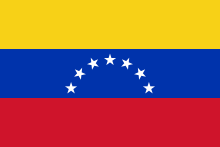Venezuela | History, Capital, Language, Flag, Facts & Geography of Venezuela
History of Venezuela:
Venezuela was inhabited by indigenous peoples thousands of years before the arrival of the Spaniards. In 1522, Nueva Toledo became the first Spanish settlement in South America. However, Venezuela was a somewhat neglected colony as the Spaniards were busy mining gold and gaining wealth in other, more profitable countries.
In the late 17th century, Venezuelans began to desire independence from Spain. Led by patriot Simon Bolivar, Venezuela, along with Colombia, Panama and Ecuador, liberated Spain and founded the Republic of Gran Colombia in 1821. In 1830 Venezuela became its own independent state.
Get Free Counseling
Much of Venezuela’s history has been marked by dictatorships and military regimes. The country is now led by Hugo Chavez. He pushed socialism to the extreme, undermining the democracy the country had achieved at the end of the 20th century.
Information about Venezuela:
| Capital | Caracas |
| Population | 28,923,119 (Source: 2023 worldometer) |
| Major Cities | Caracas (capital), Maracaibo, Barquisimeto, Valencia, Maracay |
| Borders | Guyana to the east, Brazil to the south, and Colombia to the southwest and west and the Caribbean Sea and the Atlantic Ocean to the north |
| Gross Domestic Product (GDP) | $3,385,090,000,000 (2022 worldometer) |
| Currency | bolivar (VEB) |
Flag of Venezuela:
Venezuela Economy Key Industries:
Venezuela Major Industries: petroleum, construction materials, food processing, textiles; iron ore mining, steel, aluminum; motor vehicle assembly
Venezuela Agricultural Products: corn, sorghum, sugarcane, rice, bananas, vegetables, coffee; beef, pork, milk, eggs; fish
Venezuela Natural Resources: petroleum, natural gas, iron ore, gold, bauxite, other minerals, hydropower, diamonds
Venezuela Major Exports: petroleum, bauxite and aluminum, steel, chemicals, agricultural products, basic manufactures
Venezuela Major Imports: raw materials, machinery and equipment, transport equipment, construction materials
The Geography of Venezuela:
Total Size of Venezuela: 912,050 sq km (source: 2022 The world factbook)
Geographical Low Point of Venezuela: Caribbean Sea 0 m
Geographical High Point of Venezuela: Pico Bolivar (La Columna) 5,007 m
Climate of Venezuela: Tropical; hot, humid; more moderate in highlands
General Terrain of Venezuela: Andes Mountains and Maracaibo Lowlands in northwest; central plains (llanos); Guiana Highlands in southeast
World Region or Continent of Venezuela: South America
Geographical Coordinates: 8 00 N, 66 00 W
The People of Venezuela & Culture
Venezuela Government Type: federal republic
Venezuela Nationality: Venezuelan(s)
Venezuela National Holiday: Independence Day, 5 July (1811)
Venezuela Independence: 5 July 1811 (from Spain)
Venezuela National Symbol: troupial (bird)
Venezuela National Anthem or Song: Gloria al bravo pueblo (Glory to the Brave Nation)
Venezuela Languages Spoken: Spanish (official), numerous indigenous dialects
Venezuela Religions: nominally Roman Catholic 96%, Protestant 2%, other 2%
Interesting Facts about Venezuela:
The name Venezuela comes from the Italian word “Veneziola” (little Venice).
Oil is cheaper than water in Venezuela.
Venezuela is home to the world’s tallest continuous waterfall, Angel Falls. 17 times more than Niagara.
Venezuela’s Lake Maracaibo is the thunder capital of the world. Thunderstorms occur about 10 hours a night and 140-160 nights a year.
Beast isn’t the only one to surprise people when he hits a milestone on social media.
In 2012, Venezuelan President Hugo Chavez gifted the 19-year-old girl who became the 3 millionth Twitter follower her new home.
In 2015, Venezuela’s inflation rate exceeded 141%, the highest in the world.
About 75% of the Venezuelan population lost at least 19 pounds in 2016 due to inflation. All this happened due to the lack of proper nutrition during the economic crisis.
In 2017 you became a millionaire with he $10 in the national currency of Venezuela.
Inflation in Venezuela reached an incredible peak of 1 million percent in 2018. At the time, experts estimated that a roll of toilet paper cost about 2.6 million bolivars in Venezuela. The same roll of toilet paper costs 40 cents in US dollars. Venezuela became the first modern state to abolish the death penalty for all crimes in 1863.
In addition, there is also a Venezuelan prison with a nightclub.
In 2015, Venezuela was given the title of the deadliest place in the world with a murder every 21 minutes.
Venezuela has won the Miss Universe pageant seven times.
Four out of 100,000 Venezuelan men opt for penis enlargement surgery, the second highest rate in the world. Venezuela is home to the world’s largest rodent, the capybara. It grows to a height of 60 centimeters and weighs over 50 kilograms.
His 88% of Venezuelans follow Christianity, making it the country’s most dominant religion.
Venezuela’s official motto is “Dios y Federation”, which means “God and the Commonwealth”.
The name of the Venezuelan currency comes from the national hero Simon Bolivar.
Spanish is the official language of Venezuela.
